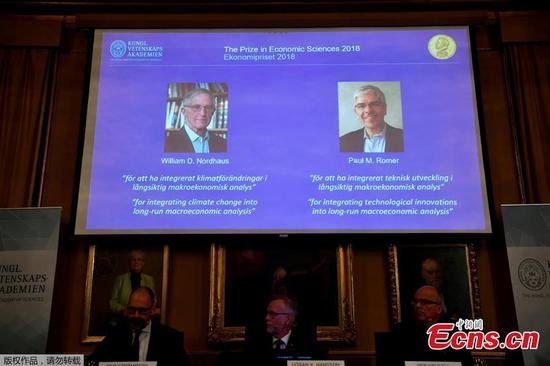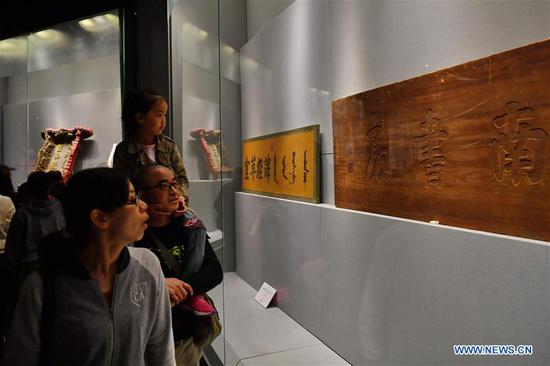The benefits of studying in the UK are being felt by many Chinese students.
Zhang Feng, a PhD student at the University of Greenwich, said: "I've never regretted my decision to study in Britain. It was my UK student experience that helped me to find what I wanted to do in life."
Zhang first went to the UK in 2013, when he was 23, for a one-year overseas experience during his undergraduate degree studies at Anhui University in Hefei, the provincial capital.
He planned to stay for just a year, but instead decided to remain for his master's and doctorate. Looking back, Zhang said the key benefits from his UK study experience were improving his English, critical thinking and research skills, and teamwork and leadership abilities.
Yan Feifei, a PhD student at the University of London's School of Oriental and African Studies, said the "incredibly high" academic standards in the UK pushed her to the limit.
"I was mentally prepared for a big workload, but I really did not realize how absolutely demanding my classes would be until I started," said Yan, who majors in comparative literature.
Every week, she has to read two novels and analyze notes on one poet. All this work equates to about 1,000 pages of reading.
Xu Shuning, a mathematics student at Imperial College London, said, "I have developed self-studying abilities, time management skills and communication skills with people from different backgrounds."
Behind the increase in outbound Chinese student numbers is the rising wealth of the country's middle class.
Huang said, "Overseas education used to be a luxury accessible only by the elite, but now it is common and easily achievable."
According to Education Ministry statistics, 544,500 Chinese studied abroad in the 2016-17 academic year, more than three times the 179,800 that sought education overseas in 2008.
The U.S. dominates the Chinese outbound student market, followed by Australia and the UK. In the 2015-16 academic year, the U.S. received 291,000 Chinese students, Australia 112,000 and the UK 91,215.
In addition to growing student numbers, Huang said new groups of Chinese students in the UK are also arriving in the country at younger ages, making more diverse degree choices.
The number of Chinese students applying for undergraduate degrees has grown faster than those applying for master's, and the numbers for arts and social sciences courses are rising faster than for the more historically popular business degrees.
"Arriving at a younger age often enables students to stay in the UK for longer and gain a fuller British student life experience," Huang said. "In comparison, those students coming to the UK for just one year to pursue a master's degree may find their experience quite rushed."
Whereas 10 years ago about 60 percent of Chinese students in the UK studied economics and business-related subjects, this proportion has dropped to about 40 percent in recent years. Traditionally less-popular subjects, including creative art and design, are now being studied by more students.
Huang said: "It is encouraging to see that Chinese students are making more varied choices of subjects. It shows that younger generations of Chinese students are perhaps more independent in their thinking and more informed about subject choices."
Universities' perspective
For British universities, Chinese and other international students provide a crucial source of income. A recent study by University College London's Centre for Global Higher Education found that overseas students add about 20 billion pounds ($25.54 billion) to the UK economy each year.
Jonathan Pitt, international partnerships and recruitment officer at St. Mary's University in London, said international students also contribute cultural diversity to British universities.
"Chinese students at our university act as a crucial bridge for our other students to better understand China," Pitt said. "We are also consciously building up our Chinese alumni network. Our Chinese alumni can help our efforts to strengthen our reputation in China, and that can open doors to new joint teaching and research partnership opportunities between us and Chinese universities."
Charles Cao Quin, deputy pro-vice-chancellor at the University of Leicester, said, "Chinese students' respect for teachers, their learning attitude and abilities are all qualities that can inspire and encourage their classmates."
Ding Shan, deputy general manager of the Walkite International Academy, an education company in London, said that despite the continued growth in numbers, recent terrorist attacks in the UK have worried some prospective students about choosing to study in the country.
"Chinese students and parents care very much about safety," said Ding, who provides advice about applying for UK universities.
Last year, attacks at Westminster Bridge, the Manchester Arena, London Bridge and a mosque in north London killed 36 people.
Ding said: "Recent events have perhaps made some students feel it is unsafe to live in the UK. Therefore, it is not surprising that some choose Australia over the UK, especially if they are looking to stay permanently to work after graduation."


















































